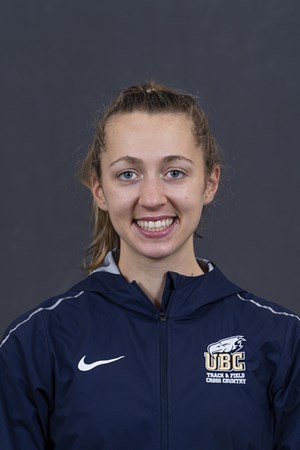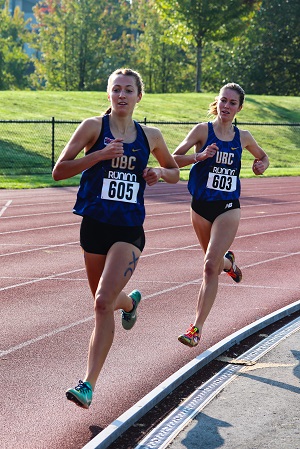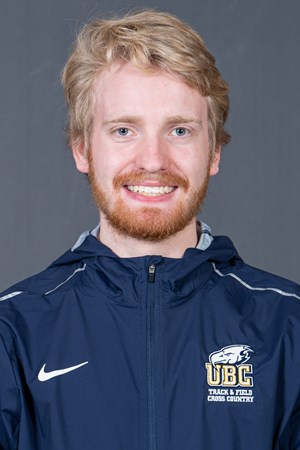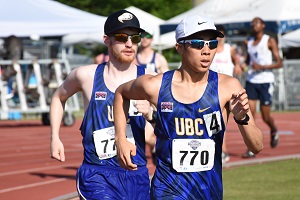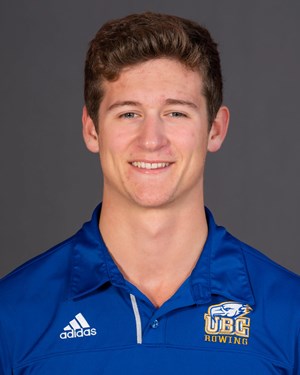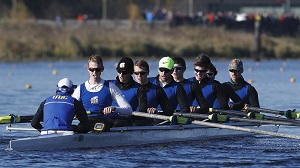Tagged with: 2021, Applied Animal Biology, Applied Biology, Faculty
Deans Message for LFS Community Connects: February 2021
Deans Message for LFS Community Connects: February 2021
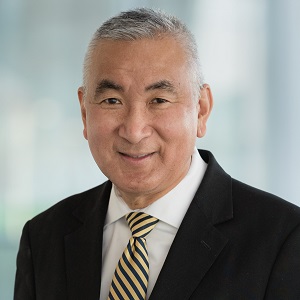
I hope the year has started well for you! I’m optimistic we’ll see a turning point later in 2021 and that gives me renewed energy as we slowly begin to plan for life post-COVID-19.
This month the university is celebrating Black History Month. This is a time to put focused effort on recognizing and celebrating the achievements of our black students, faculty and staff. It’s also a time to reflect on ways to support the Black community. UBC is hosting several events that aim to turn reflection into deeper understanding and positive action.
I invite you to visit the UBC events page to find out more. On March 12, everyone is welcome to our virtual UBC Connects event titled Beyond the Police state: a conversation with Desmond Cole and Robyn Maynard. Also, on Feb. 25, UBC’s School of Journalism, Writing, and Media hosts an online workshop with Journalist-in-Residence, Eternity Martis. Eternity is an award-winning, Toronto-based reporter and her workshop titled Reporting on Black Communities 101 will help people tell stories about Black communities fairly, respectfully and with accountability.
LFS is also celebrating Black History Month by featuring interviews with some of our outstanding Black student scholars and alumni. I am happy to share these inspirational stories with you – visit our page at https://lfs-ps-2023.sites.olt.ubc.ca/black-history-month/.
At the Faculty of Land and Food Systems, we are embedding equity, diversity and inclusion (EDI) into our new strategic plan. We have hired Dana-Lyn Mackenzie as Senior Manager EDI and Indigeneity, in a shared position with UBC Faculty of Applied Science. A member of the Hwlitsum First Nation, based in Canoe Pass, B.C., she will develop, implement and complete projects on EDI and Indigenous engagement across LFS in tandem with our EDI Working Group. Dana-Lyn has most recently worked as an associate for Acumen Law in Vancouver. She brings a wealth of knowledge in higher education having worked at Dalhousie University and UBC’s Allard School of Law previously, and she was recognized with a 2016 UBC President’s Staff Award on Advancing Diversity and Inclusion. We are very excited to welcome Dana-Lyn to our community!
Cheers,
Rickey Yada
Professor and Dean
Black History Month
Black History Month
February 19, 2021
To recognize and celebrate Black History Month, the Faculty is pleased to present a few of our student scholars and alumni.
We acknowledge their accomplishments and look forward to following the work of these Black scholars. Many aim to work on global issues surrounding sustainability in agriculture, the food system, economics and the complex policies surrounding these. They share why they chose to study at UBC in the Faculty of Land and Food Systems, challenges they see ahead, and their sources of inspiration.
To view all UBC events celebrating Black History Month, visit this page.
Mercy Wanalo
Mercy Wanalo is a Mastercard Foundation Scholar who graduated with a Bachelor of Science in Food, Nutrition and Health in 2018.
Oba Harding
Oba Harding graduated with a Bachelor of Science in Agriculture in 2001. He works as a Senior Business Officer for the Western Economic Diversification Canada.
Anne Joseph
Anne Joseph is a Mastercard Foundation Scholar currently enrolled in the Master of Land and Water Systems program.
Timilehin Oguntuyaki
Timilehin Oguntuyaki is a Mastercard Foundation Scholar who graduated from the Master of Land and Water Systems program in 2020.
Olatunbosun Ayetan
Olatunbosun Ayetan is a Mastercard Foundation Scholar who graduated from the Master of Land and Water Systems program in 2019.
Olivier Ntwali
Olivier Ntwali is a Mastercard Foundation Scholar who graduated from the Master of Food and Resource Economics program in 2018.
Fayokemi Oluwayemi
Fayokemi Oluwayemi is a Mastercard Foundation Scholar who graduated from the Master of Land and Water Systems in 2020.
Tagged with: 2021, Alumni, Equity Diversity Inclusion and Indigeneity, Graduate
Edible Packaging is as Good For Your Food as it is For the Planet
Edible Packaging is as Good For Your Food as it is For the Planet

It’s near impossible to avoid plastic packaging in the food industry today. This type of packaging is often non-reusable and non-biodegradable, and when not disposed of correctly, can cause major impacts to the environment and wildlife.
Fortunately, research is being done to find alternatives. Innovations have been made in developing edible films, typically made from starch-based products such as potato, corn, green bean and tapioca.
B.C. Ministry of Agriculture Endowed Professor Anubhav Pratap-Singh is part of a team of researchers from the Food Science and Plant Science programs in the Faculty of Land and Food Systems looking to advance this research by adding the capacity to carry antioxidant compounds.
“Starch-based film is already low cost and has a smaller environmental footprint than plastic, but by adding antioxidants, we can further protect the food against oxidation, microorganism growth, browning and vitamin losses” said Dr. Singh.
In a study conducted last year, Dr. Singh’s team tested the development of starch-based edible packaging film incorporated with blueberry pomace powder. The powder is made from the leftover skin, pulp and seeds from blueberries after they are juiced – parts that are typically discarded, even though they are a rich source of vitamins, minerals, and fibres.
During the study, the team tested edible packaging films from different starch sources with varying concentrations of blueberry pomace powder. Potato and tapioca films depicted higher ultraviolet light absorbance (which would slow food deterioration), while corn starch films were less glossy and stronger.
“We found that the addition of the powder did not negatively affect the colour, thickness or transparency of the film, nor did it change the structural integrity or strength,” said Dr. Singh. “It presented an all-around improvement to the quality of the food, suggesting the potential to be used in active packaging.”
The team’s results were published in the journal Foods, in November 2020.
The team will now focus on improving the strength of the film, and test it against different types of food.
Tagged with: 2021, Faculty, Food Science, Plant Science
UBC Graduate Certificate in Aquaculture: Registration is open!
UBC Graduate Certificate in Aquaculture: Registration is open!
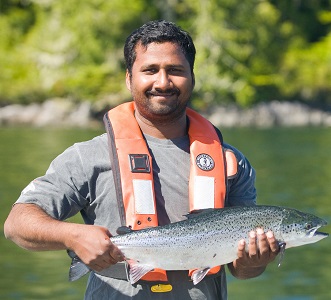
Interested in sustainable food sources, ocean sciences, or cultivating fish and aquatic plants? Consider a career in aquaculture!
We are now accepting applications for this one-semester program for fall 2021. The program will be offered online, with potential industry site visits if allowed in the fall. Taught by professionals in fish health, seafood processing, production systems and ecological sustainability, this certificate program is perfect for students who want to gain career-ready skills.
Aquaculture helps to supplement natural fish stocks, and it has grown into a large, commercial industry employing 25,000 people across Canada. This growing industry needs more well-trained aquaculture professionals who are grounded in science and are passionate about sustainability and healthy food production.
Those with a bachelor of science or engineering degree are eligible to apply to the Graduate Certificate in Aquaculture, offered by UBC’s Faculty of Land and Food Systems.
The Program includes seven courses:
- Aquaculture Production Systems
- Fish Nutrition, Feeds and Feeding
- Fish Health
- Finfish Genetics and Reproduction in Aquaculture
- Ecological Sustainability of Aquaculture
- Business Concepts in Aquaculture
- Seafood Processing
Send us an email or visit our website to watch an information session and learn about the application process:
Website: aqua.landfood.ubc.ca
Email: lfs.aquaculture@ubc.ca
Tagged with: 2021, Applied Biology
Jean-Thomas Cornelis
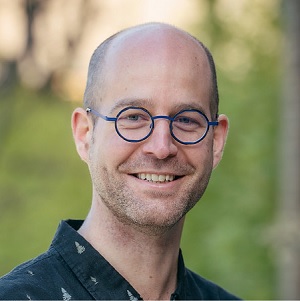
Jean-Thomas Cornelis
Associate Professor, Applied Biology (Soil Science)
604-827-4813
225-2357 Main Mall
University of British Columbia (EOAS Department, PCIGR) and UCLouvain (Earth and Life Institute), 2011, FNRS Post Doctoral Fellowship
UCLouvain (Earth and Life Institute), 2010, PhD, Soil Science
UCLouvain (Faculty of Biological, Agricultural and Environmental Engineering), 2006, MSc, Environmental Sciences and Technology
UCLouvain (Faculty of Biological, Agricultural and Environmental Engineering), 2003, BSc, Bio-engineering
My research program is directed towards studying feedbacks between soil processes and biogeochemical cycling of elements in terrestrial environments affected by natural and anthropogenic-induced changes. My process-based approach focus on the soil system, which by nature, integrates processes at different scales and from different disciplines. My current research projects, centered on pedology, go from soil biogeochemical processes, soil-plant feedback interactions and biogeochemical cycling of elements under various pedological, biotic, climatic and geological conditions to more diverse interests by collaborating with research teams in applied geochemistry, functional ecology, plant physiology and soil microbial processes. My primary research objective is to apply the knowledge of soil science for the purpose of suggesting sustainable management of ecosystems: increasing the resistance and resilience of soil-plant systems while decreasing human-induced pressures on the environment.
For more information on the research carried out in our SoilRES3 Lab, please visit the Soils and Biogeochemistry – SoilRes3 Lab website.
Please visit Dr. Cornelis’ Google Scholar page for a full list of publications
Here is a snapshot view of my recent research work:
De Tombeur, F., Turner, B., Laliberté, E., Lambers, H., Mahy, G., Faucon, M-P., Zemunik, G., Cornelis, J-T. (2020) Plants sustain the terrestrial silicon cycle during ecosystem retrogression. Science 369, 1245-1248
Burgeon, V., Fouche, J., Leifeld, J., Chenu, C., Cornelis, J-T. (2020) Organo-mineral associations largely contribute to the stabilization of century-old pyrogenic organic matter in cropland soils. Geoderma, in press
Hardy, B., Sleutel, S., Dufey, J., Cornelis, J-T. (2019) The long-term effect of biochar on soil microbial abundance, activity and community structure is overwritten by land management. Frontiers in Environmental Science, 7, 110
Cornelis, J-T., & Delvaux, B. (2016). Soil processes drive the biological silicon feedback loop. Functional Ecology, 30, 1298-1310.
Cornelis, J-T., Weis, D., Lavkulich, L., Vermeire, M.-L., Barling, J., Delvaux, B., Barling, J. (2014). Silicon isotopes record dissolution and re-precipitation of pedogenic clay minerals in a podzolic soil chronosequence. Geoderma, 235-236, 19-29.
Cornelis, J-T., Delvaux, B., Georg, B., Lucas, Y., Ranger, J., & Opfergelt, S. (2011). Tracing the origin of dissolved silicon transferred from various soil-plant systems towards rivers: a review. Biogeosciences, 8, 89-112.
Cornelis, J-T., Delvaux, B., Ranger, J., & Iserentant, A. (2010). Tree species impact the terrestrial cycle of silicon through various uptakes. Biogeochemistry, 97, 231-245.
WERNAERS-FNRS prize (Belgium) - creativity and innovation in communication of scientific knowledge and training.
Tagged with: Applied Biology, Faculty, Soil Science
Using Bacteriophages to Prevent Foodborne Pathogens
Using Bacteriophages to Prevent Foodborne Pathogens
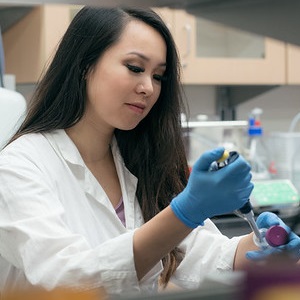
| Name | Karen Fong |
| Title | Research Scientist |
| Company | Agriculture & Agri-Food Canada |
| Grad Year | MSc (2015), PhD (2019) |
| Program | Master of Science, Doctor of Philosophy |
| Major | Food Science |
February 2, 2021 – Karen Fong is a Research Scientist for Agriculture & Agri-Food Canada.
What does a typical day at work look like for you?
My lab seeks to understand foodborne pathogens (e.g., Salmonella, E. coli) and how best to control them using novel intervention strategies. Specifically, I am interested in bacteriophages: viruses that kill bacteria without infecting human cells. They’re like tiny killers that specifically target and destroy harmful bacteria – which I find pretty cool! One aspect of my job I find pretty exciting is that I work with local and regional industry partners and am therefore able to see first-hand the impact of my research.
What motivated you to enter the science field?
I was intrigued by microbiology from a young age. When I started my undergrad, I knew I wanted to major in it. I was (and still am) fascinated by how bacteria are so simple, yet can cause such horrific diseases in humans (multicellular organisms far more complex than bacteria!)
What challenges have you faced in your career?
“Imposter syndrome”: undermining your accomplishments and feeling out of place in your present environment. I think this is something a lot of graduate students and academics struggle with, yet don’t talk so openly about. Remember that someone had to believe in you for you to get to where you are!
Share one example of where your LFS degree has allowed you to differentiate yourself from other professionals.
The small and interconnected LFS community (students, staff, faculty) was really beneficial for me. I got to know many people within LFS really well during my graduate studies and this presented me with so many opportunities that a larger faculty wouldn’t be able to provide.
What is something that you are proud of that you have accomplished in your career?
Being able to teach a diverse set of subject areas – from general food microbiology, food science and fermentation. As a graduate student you can get really focused on one niche area. I really enjoyed learning and teaching about a variety of different subjects and being able to communicate that to diverse audiences.
What are your top tips in finding the right balance between work life and personal life?
Time management is key – and so is taking care of yourself! Don’t be afraid to say no to taking on new commitments if your schedule doesn’t permit or if it means not prioritizing yourself.
Academic All-Canadian Athletes
Meet the LFS Roster of Academic All-Canadian Athletes
January 15, 2021 – Keeping yourself on the Dean’s list, while sticking to a daily training regimen and travelling for competitions, is a challenge for select students only.
LFS undergraduate students – Jamie Hennessey, Erik Thies, and Sean van Gessel – proved themselves up to the challenge, finding success both in the classroom and in their sports. They were among the 197 UBC athletes who were 2019-2020 Academic All-Canadians, recognized for their academic achievement (a minimum 80% academic standing) while representing UBC as varsity athletes.
______________________________________________________________________________________________________________
Jamie Hennessey, Track and Field – Distance
Studying: Food, Nutrition and Health (Dietetics major)
Running 15 km every day? No problem. Since COVID-19, has halted competitions, Jamie Hennessey and her team have been attending two organized practices each week. The other five days, she’ll run on her own at distances that total 15 km or more.
Hennessey’s personal experience with health issues got her interested in studying dietetics. At age 14, she was diagnosed with Type 1 diabetes and she had to learn how to manage her health and her blood sugar levels through diet. Her dietitian at BC Children’s Hospital made a huge impression on Hennessey.
That diagnosis came shortly after she discovered a love for distance running.
“I loved cross country in elementary school and had been running since I was 10. It’s rewarding to put a lot of effort into something that results in one or two fantastic performances.”
She competes in the 8 km U SPORT division. That distance allows her to battle the elements outside, but perhaps the greater battle for Hennessey is managing her medication as a high performance athlete. There’s a noticeable difference between training days and race days – when the extra adrenaline and nerves will release more glucose into her body requiring her to increase her insulin doses.
“I haven’t met any other athletes who are also managing a chronic disease like Type 1 diabetes, but it would be great to share my experience with someone.”
She credits her coach Norm Tinkham, who was her club coach at Golden Ears Athletics and has now come to UBC. She says he’s learned about diabetes and has been a good support for her.
While this season’s competitions are modified, with timed trials and virtual races, she’s still training hard. In school, Hennessey plans to graduate in 2023 and she’s excited by the opportunities that dietetics offers – she’s deciding between working in a clinical setting or specializing in endocrinology.
______________________________________________________________________________________________________________
Erik Thies, Track and Field – Race Walk
Studying: Applied Biology (Applied Animal Biology major)
Erik Thies’ favourite topic in high school was biology but his dream career has nothing to do with biology. He hopes to one day become an air force pilot.
In 2018, he applied to the Canadian Air Force and successfully passed aptitude tests covering math, vocabulary, and spatial acuity. Completing his science degree in land and food systems is another milestone that’s required, as either a science or engineering degree is mandatory.
“It costs about $1 million to train a pilot so there are a lot of stages you have to get through. They need to see that you can handle high-pressure situations where there are many distractions as you try to complete a task. The combat pilot tests are really cognitively demanding.”
Once he graduates from UBC, he hopes to spend the following 3-4 years in pilot training in Alberta and Saskatchewan. His father flew planes for fun, so Thies has been around airplanes all his life.
“I’ve always wanted to be a pilot in the military and to serve. I want to give back to my country.”
At UBC, his favourite courses have been the Agroecology course series (APBI 260, 360, 460), which teach farming and food production in a way that preserves the ecosystem of plant and soils. He spent three hours/week at UBC Farm in APBI 260 – and he also met most of his university friends in this introductory course.
In APBI 360 and APBI 460, he enjoyed working on projects with community partners, such as Charles Tupper Secondary School where he helped students plan and set up a community garden onsite.
As for race walk competitions, Thies hopes that the NAIA Championship will take place in May later this year, so he’s training as though it will happen. He competes in the 5 km race walk distance.
His favourite competition memory is attending the Western Canada Summer Games in 2015 in Fort McMurray. Thies says there’s often not a lot of fanfare for track and field, but at this event, each team proudly represented their province as they marched in the opening ceremonies.
“As a young athlete, getting to experience such a significant and amazing event, such as these games, was very inspiring and really encouraged me to continue in athletics with the hope to compete on similar stages and to get to relive such an amazing experience that I had there.”
______________________________________________________________________________________________________________
Sean van Gessel, Rowing
Studying: Food and Resource Economics
Sean van Gessel knows one thing about his future: “I’m definitely starting my own business.”
With COVID-19, he found himself suddenly back in his hometown of Victoria in spring 2020 and for the first time in his life, he had free time as rowing competitions were cancelled. So he decided to start Early Bird Home Services with two friends.
“We started going door-to-door offering window cleaning services, and eventually we became official – incorporated, licensed and insured.”
Joining in this start-up were partners Alex Matson and Henry La Prairie, and they hired five people part-time as seasonal summer workers.
Van Gessel is part of the mens 8 rowing team, which has an excellent track record, winning the National Championships at the Canadian University Rowing Championship competition for the last four years.
“It’s definitely a privilege to be part of the UBC 8 heavyweight team.”
While he had planned to study engineering at UBC, van Gessel switched into land and food systems in second year. He knew that he enjoyed working on farms and he’d built a greenhouse before, so the melding of agriculture in an urban place appealed to him. Also, outside of school he had taken up reading business books in his spare time.
Sometimes things happen by luck and it was during a first-year LFS course that Professor James Vercammen stopped by his class to talk about the food and resource economics program. It was a second-year entry program. “When Professor Vercammen came in, I knew immediately that was what I wanted to do. I started preparing for it immediately.”
In the food and resource economics program, van Gessel is able to combine his interests in business and his entrepreneurial instinct.
Tagged with: 2021, Applied Biology, Food and Resource Economics, Food Nutrition and Health, Undergraduate
Alumni Spotlight – Congratulations to the Home Economics Class of 1970!
Alumni Spotlight – Congratulations to the Home Economics Class of 1970!
To celebrate the 50 year milestone of their class, alumnae Pamela Byers and Adrianne Dale share a few highlights from their time at UBC and also their top-tips to current and newly graduated students.

Pam Byers, BHE 1970
What is your favourite memory of studying at UBC?
Cinnamon Buns! [Scroll to the bottom of the page to find the UBC cinnamon bun recipe and ‘how-to-make’ video].
How has your job changed since you graduated from UBC?
I took my chances when I graduated from UBC, and after working in a local school district with single parent women, I realized my strength was in working with people. My home economics degree gave me a solid background in nutrition, psychology, sociology and decision making. These skills still apply today, and are applicable in many types of work. It is wonderful to hear that UBC has Home Economics education programs.
What is something that you are proud of in your work and career?
I spent many years in government work. Developing my skills in communication and in the understanding of human relationships at UBC has enabled me to pursue a career that involves conflict resolution.
What do you do to stay updated with your field of study?
The research skills I learned in studying home economics has enabled me to critically evaluate and find credible sources of online information, which keep me up to date.
What is one message you would like to share with students about how they can prepare for the world of work?
Don’t be afraid of continuing your education. Be open minded to new opportunities and be confident in the skills you are learning, they are transferable, use them to your best advantage.
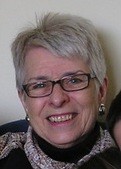
Adrianne Dale, BHE 1970
What is your favourite memory of studying at UBC?
My favourite memory is the camaraderie that I felt while studying and living with my peers in Home Economics. We supported each other throughout our time at UBC and have continued that connection, 50 years later!
How has your job changed since you graduated from UBC?
I taught home economics for 6 years, in junior high schools, in Surrey and Chilliwack. Although I enjoyed teaching, I felt drawn to another field of endeavor and returned to education, obtaining an associate’s degree in Interior Design from Douglas College. I worked in the design studio of the Hudson Bay Company in Vancouver, before moving to the Seattle area, and opening my design studio in 1983.
I see a natural progression from Home Economics to Interior Design, as my time at UBC taught me about family structures, sociology and psychology, textiles and business.
What is something that you are proud of in your work and career?
One of my proudest accomplishments was membership in the American Society of Interior Design, rising to great heights on their National Board of Directors and achieving fellowship status. This opened up new and exciting opportunities for me to travel and to meet outstanding professionals in the field.
What do you do to stay updated with your field of study?
I receive the Faculty of Land and Food Systems monthly newsletter (ReachOut twice a year, and LFS Community Connects, 10 issues a year). These are wonderful sources of information, and it is always exciting to read about the research, education and community engagement that the Faculty, alumni and students pursue.
In semi-retirement, I have enjoyed being a substitute teacher in family food science and life skills, as well as the occasional French class (there aren’t many French speakers in the US!)
What is one message you would like to share with students about how they can prepare for the world of work?
Be open to all opportunities that use your skills. Incorporating all that you learn at UBC can enrich your life and give you nourishment in many fields of work, especially those that may not be your first choice.
*************************************************************************************
UBC Cinnamon Bun Recipe
The UBC Cinnamon Bun recipe was first perfected by Hungarian Baker, Grace Hasz in 1954 at the old UBC Bake Shop. Within a few years she went from baking two dozen to a staggering 120 dozen per day as the bun grew in popularity.
For bakers of all ages and experience, here’s a link to the recipe used by today’s UBC campus bakery, plus a helpful how-to video made by the Alumni UBC team! https://food.ubc.ca/ubc-cinnamon-bun-recipe/
Tagged with: 2020, Alumni, Young Alumni Council
